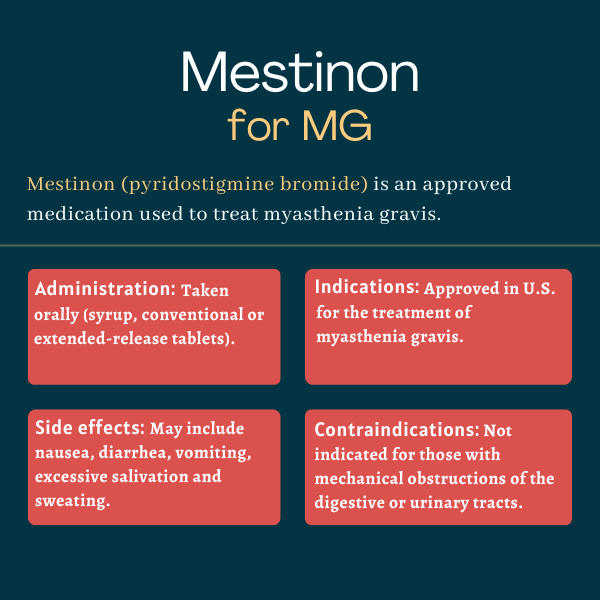FAQs about Mestinon
The U.S. Food and Drug Administration (FDA) approved Mestinon in 1955 as an oral tablet for the treatment of myasthenia gravis. Other formulations have been developed since then, including extended-release tablets, syrups, and injectable forms.
As each person is unique and can respond differently to treatment, there is no standard timeline for when Mestinon starts to work. But the therapy has been reported to take about 20-30 minutes to have a clinical effect. Mestinon’s therapeutic effects last for approximately six hours in the case of conventional tablets, and six to 12 hours in the case of Timespan extended-release tablets. Still, patients are advised to talk with their healthcare team to understand how Mestinon can help in their particular case.
No well-controlled studies of Mestinon have included pregnant patients, so it is unclear whether the therapy is safe to use during pregnancy. Patients who are pregnant or plan to become pregnant while on Mestinon should discuss this with their doctor.
Because Mestinon can increase the contraction of the eye’s pupil, it may cause blurred vision and reduce the sharpness of a person’s eyesight. Patients are advised not to drive or operate machines until they know how the therapy affects their vision, and to avoid these activities altogether if it does reduce their ability to see clearly.
Related Articles

 Fact-checked by
Fact-checked by 







